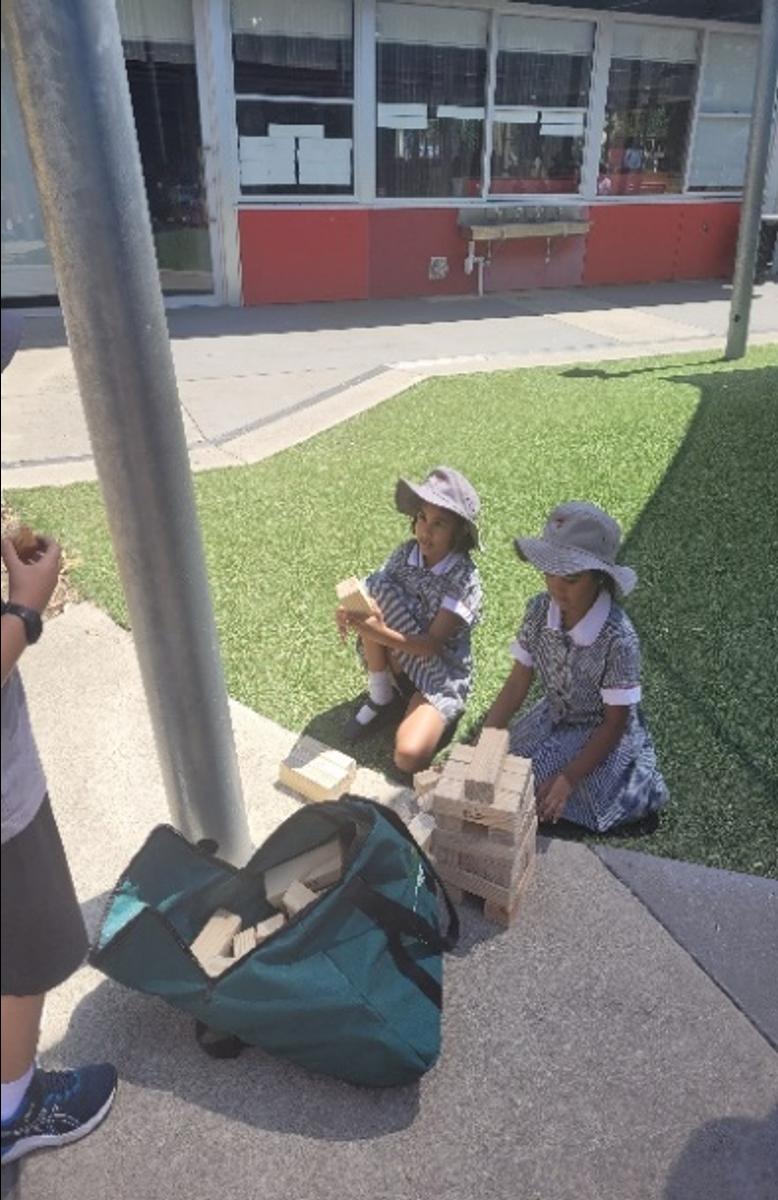Wellbeing

We will be celebrating Harmony day at school on Monday the 21st March. The children will be allowed to dress in orange or colours and traditional costumes that reflect their cultural background. The theme for this year is “Everyone belongs”. We encourage you to have a conversation with your children at home about Harmony day.
National day for Action against bullying
National day for Action against bullying is on Friday 18th March. Australia’s key bullying prevention initiative celebrates 12 years of action, connecting schools and communities to find workable solutions to prevent bullying.
The theme for 2022 is Kindness Culture. By building Kindness Culture together, we can promote inclusion, respect and community belonging for all students in schools across Australia. Parents and Carers have an important role to play in helping on the prevention of bullying. It is crucial that we understand what bullying is.
Bullying is an ongoing misuse of power in relationships through repeated verbal, physical and/or social behaviour that intends to cause physical, social and/or psychological harm. The following information is taken from the Bullying no way website and has some helpful information about how to have a conversation with your children about bullying.
Use opportunities in conversation
“Parents can use the many opportunities that arise to talk with their child about how people behave in various social situations and how people get on with each other.
If your child tells you about things at school or you see things in public that involve conflict or bullying, and if it is appropriate, take the opportunity to talk about what bullying is. Talk about what bullying is before it happens so children can recognise it and know what to do.
First, make sure you have a clear idea yourself by checking out the formal definition of bullying at understanding bullying. You can also find ways to describe bullying that are suitable for children of various ages.
Point out that bullying is not just when someone is mean to you once, but it happens over and over and makes you feel like you can't stop it. If you want, you could use some of these questions:
- What do you think 'bullying' is?
- Have you seen bullying happening? What did you do? How did you feel?
- Why do you think some people bully other kids?
- Who are the adults you would talk to when it comes to things like bullying?
- Have you ever felt scared to go to school because you were afraid of someone bullying you?
- Has someone tried to bully you? What ways have you tried to change it?
- What do you think parents can do to help stop bullying?
- Have you or your friends left other kids out on purpose? Do you think that was bullying? Why or why not?
- Have you ever tried to help someone who is being bullied? What happened? What would you do if it happens again?
Tell children that bullying can happen to anyone but it is never okay. Talk about how to respond to bullying safely. Make sure children know what to do if it happens to them or they see it happening to someone else. Most importantly, let children know how to get help if bullying happens.
Encourage them to speak to an adult if it happens, and to keep on asking for help if the bullying doesn't stop. Read more about what to say at responding to bullying.
Talk with students about how they might handle other challenging social situations as well.
Parents and carers have an important role to help children and young people learn how to manage their own feelings and to work out how to argue or disagree with other people in appropriate ways. Everyday activities and issues can be valuable learning opportunities.
Avoid describing a child as a 'bully' or a 'victim'. Although these words are often used in research and in the media, they are not very helpful for finding positive and lasting solutions. Talk about bullying with the understanding that children and young people are growing and still learning how to be effective members of the community..
When you talk about bullying, focus on more appropriate ways to act with others and positive ways to get on with other people.
Children can change the way they behave with support from parents and teachers. If the labels of 'bully' or 'victim' stick, it can make it harder for them to change. Using these words can suggest that bullying and being bullied are due to unchangeable things about the children involved.
The labels of 'bully' or 'victim' can also cause further harm if a child accepts them as part of their social identity.”
Lunch time Social skills club
Every Tuesday the children have an opportunity to join the lunch time social skill’s club in the quiet area of the playground (between learning space 1 and 2). This is to help children who may feel a bit lost at lunch time, lack the confidence to approach other children or have trouble making friends. We started last week with lots of children attending. The children played with the large connect 4 games and the Jenga blocks. The children are lucky at SFS to be offered opportunities to be involved in a variety of lunchtime clubs and activities such as the choir, art club and Mini Vinnies.
The Resilience Project
At SFS, we are in our 3rd year of partnership with the Resilience Project. We teach the key principles of Gratitude, Empathy, Mindfulness and Emotional Literacy. This term we are focusing on Gratitude, which is the ability to be thankful and focus on what we do have instead of what we do not have. There will be a parent webinar held on Wednesday 23rd March at 7pm. More information will be sent closer to the date with information about how to join the session. I encourage all parents to attend these online seminar.
Building strong working relationships with teachers
It is really important for parents and teachers to build communication with each other from the start of the year so that we can continue to strengthen and grow the school and parent partnership. It has been especially difficult under the conditions of the last 2 years with limited opportunities for parents to come into the school environment and chat face to face with their child’s teacher.
The following article is taken from the Parenting Ideas school website and has some helpful information about this. It is written by leading parenting expert Michael Grosse.
Studies show that healthy parent–teacher relationships are a more significant factor in student success than parent income levels or social status. Parent–teacher relationships require effort and energy from both parties if they are going to really benefit children and young people. These key strategies will help you build a healthy working relationship with teachers in the year ahead.
Get to know them
For your partnership to be meaningful and successful, you need to meet with your children’s teacher(s) with the goal of forming a respectful professional relationship. Be willing to share your aspirations for your child and be willing to build the teacher’s knowledge about your family. For balanced perspective, also gain an understanding of the teacher’s approach and what focus areas they have for their particular year group. This can be done formally by attending start of the year information evenings and informally through conversations, reading newsletters and staying in touch in digitally and in real-time.
Trust their professionalism
Children need to know that their parents are fully behind what their teachers are trying to achieve if they are going to commit fully to learning. The best way to support your child’s teacher is to trust their knowledge, professionalism and experience. Avoid the temptation to question the expertise of teachers in front of students, particularly when the teachers use methods that you are unfamiliar with. Initiate conversations with teachers around methodology to give them the chance to explain the approach they are taking.
Go through the right channels
Despite the best teaching practices things do go wrong at school. Kids experience learning difficulties. Conflict and peer rejection happen. Kids will often come home from school with grievances and call on you for assistance. Resist the urge to react emotionally. If you need to contact teachers do so respectfully, calmly and through the correct channels. A measured response will generally achieve the best result for your child.
Stay solution-focused
When problems arise at school, particularly pertaining to a child’s learning or wellbeing avoid taking a fixed position to your child’s teacher. Gather the facts as best you can and present your concerns but remain flexible to gain an outcome that’s both obtainable and in the best interests of your child. Parent-teacher relationships can easily falter when one or both parties take a firm position about a problem and are unwilling to give ground.
Utilise their resources
Teachers and schools often put a lot of work into sourcing and sharing credible resources that they think will help parents. Take the time to read, utilise and enjoy the information provided to you. It’s intended to make your parenting journey easier, which will also benefit your child not just at school, but at home.
Build links to student learning
There’s a huge body of research that points to the correlation between parent engagement in student learning and their educational success. If you want your child to improve their learning, take an interest in what they are doing. Follow school and teacher guidelines about helping at home and attend as many conferences, meetings and events involving your child as possible. This strategy has a significant, long-term impact on your child’s attitude to learning.
Stay in touch
Life’s not always smooth sailing for kids of any age. Family circumstances change. Friends move away. Illness happens. Mental health challenges can hit anyone at any time. These changes affect learning. Make sure that you keep teachers up to date with significant changes or difficulties that your child or young person experiences so they can accommodate your child’s emotional and learning needs at school.
Be loyal
Show your loyalty to your child’s teachers by being an advocate. Talk positively about your child’s teacher and school, rather than being negative about them when speaking in the wider community. Teachers hold very public positions and generally work hard to build good reputations both within their school and their wider education community. Consider a teacher’s reputation among the community and with children when you discuss educational matters with others .Building healthy relationships with your child’s teacher doesn’t just happen. It takes goodwill from both sides, a commitment to setting aside the time necessary to support the home-based learning tasks that are expected, and a willingness to communicate concerns and commendations through the correct channels.
If you have any concerns about the wellbeing of your child or you would like to know more about the Wellbeing programs we offer at SFS, please do not hesitate to contact me.
rlenko@sfslynbrook.catholic.edu.au
Rachel Lenko
Student wellbeing leader
Rachel Lenko
Student Wellbeing Leader





